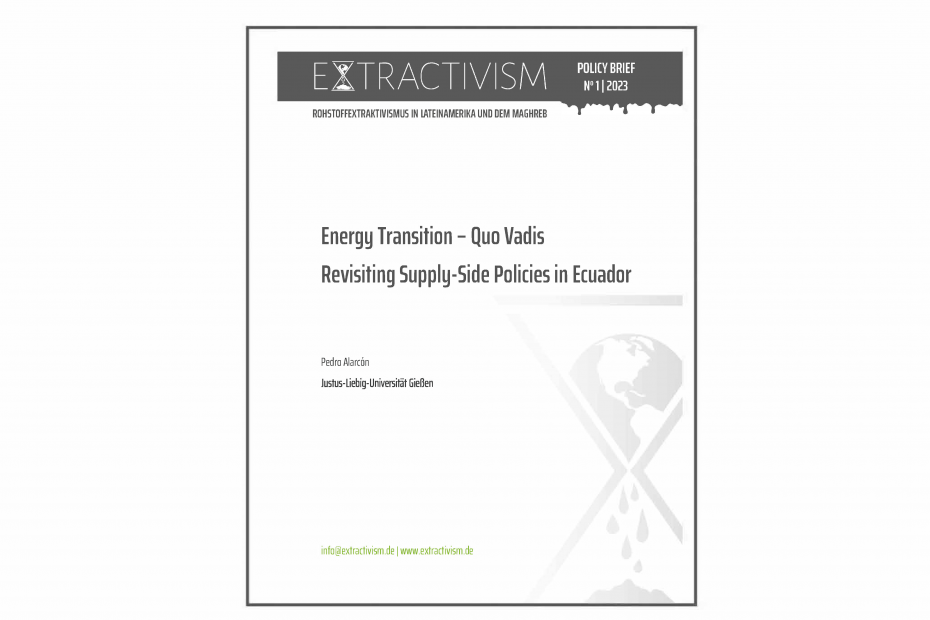This Extractivism Policy Brief shows:
• Extractivism has shaped Ecuador for the last half century.
• The Yasuní initiative aimed at leaving about one fifth of Ecuador’s oil reserves underground
• Poor handling of the Ecuadorian government and the international community let it falter and finally fade
• Energy transition towards renewable energy sources might provide a new scenario in which supply side policies such as leaving fossil fuels underground and fossil fuel non-proliferation treaties might be (re –)tested
Despite the intended global change toward sustainability, the transition entails the continuity of extractivism in the Global South. Suppose the world is committed to the goal of the Paris Agreement to keep global warming below 1.5 °C compared to pre-industrial levels; fossil fuel extraction needs to be reduced by 6 percent per year by 2030. Instead, snowballing global demand hanging on the recovery of the pandemic and the growing tensions between the West and Russia is pushing exporting countries to extract 110 percent more fossil fuels by 2030 (SEI et al., 2021). Therefore, supply-side policies that limit the further expansion of fossil fuel extraction are gaining growing recognition.
Despite coalescing around the Paris Agreement, innovative supply-side policy approaches do not necessarily conform with conventional United Nations Framework Conference on Climate Change (UNFCCC) schemata based on carbon market rationale. This hinders their possibilities of implementation as climate policies. However, innovative supply-side policy approaches might be launched under other relevant frameworks currently at the top of the international political agenda, such as the energy transition.
The global scenario set by the energy transition might turn into an arena for implementing supply-side policy approaches such as leaving fossil fuels underground (LFFU) initiatives. Therefore, in this Extractivism Policy Brief, the author revisits the Yasuní initiative, a failed Ecuadorian plan to leave about one-fifth of the country’s oil reserves unexploited in exchange for international compensation for revenues foregone. First, he focuses on the significance of oil in Ecuador to explain the context in which the initiative took place and the domestic and international levels of engagement the initiative entailed. Finally, the author discusses the lessons learned and outlines the conditions under which supply-side policy measures might contribute to a global transition away from fossil fuels.
Download the Extractivism.de Policy Brief 01/2023 here (ENGLISH)
Author: Dr. Pedro Alarcón, University of Gießen (Fellow bei Extractivism.de)



